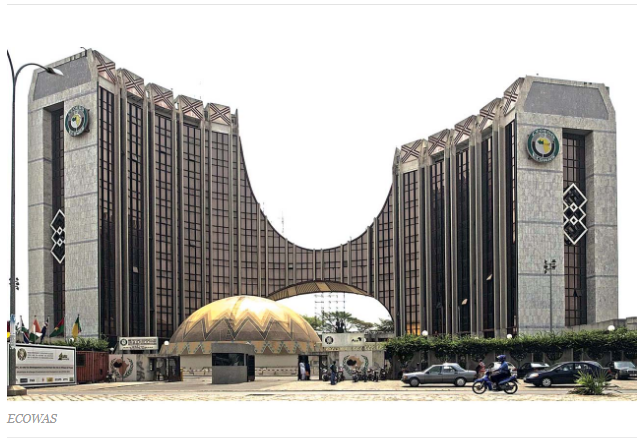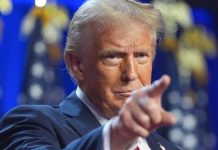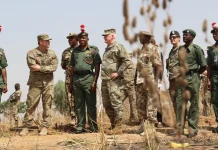West African leaders were meeting on Thursday to decide on measures to bring Guinea back to constitutional rule after troops ousted President Alpha Conde in a coup this month.
The 15-member regional ECOWAS group already suspended Guinea after Conde’s ouster on September 5 by a special forces commander who captured the president and declared a political transition.
ECOWAS sent a mission to Guinea last week to meet with coup leader Lieutenant-Colonel Mamady Doumbouya and on Thursday will review the mission’s report and decide on next steps.
“We are required to take informed decisions on these matters,” Ghana’s President Nana Akufo-Addo, who is also the current chair of ECOWAS, said opening the summit. “I count on your excellencies to help proffer durable solutions to the crisis.”
Ghana’s Foreign Minister Shirley Ayorkor Botchwey said on Wednesday the coup leaders were probably still not in a position to decide on a timetable for a return to democratic rule.
But the ECOWAS heads of state will take decisions on what they want to see over the next months for progress in Guinea, she said.
“I am not saying that sanctions will be applied but that may happen,” Botchwey said.
“The heads of state will… consider the totality of the situation and then come up with decisions on what they will do… to put pressure on the coup makers, the military, to return their country back to constitutional rule.”
Guinea’s military rebellion has fuelled international concerns over democratic backsliding across West Africa and drawn parallels with Mali, which suffered two coups since August last year.
No timetable
Guinea’s junta began a four-day series of talks on Tuesday designed to sound out the country’s leaders on the path towards civilian rule.
Doumbouya and his ruling officers have so far met political leaders, religious authorities and rights activists, and are due to speak to foreign diplomats, trade unionists and mining executives through to Friday.
When addressing political leaders in Guinea on Tuesday, Doumbouya said the coup was the result of “the failure of the entire political and military class”.
He also refused to commit to a timetable to restoring civilian rule.
READ ALSO: Salvadorans Say No To Bitcoin As Legal Tender
“The only timetable that counts is that of the Guinean people who have suffered so much,” the strongman said.
After seizing power earlier this month, Doumbouya cited rights abuses under Conde and promised a government of “national unity” that will guarantee a transition.
There have been no concrete details on transition plans since, however.
When faced with a similar coup in Mali last year, ECOWAS imposed economic sanctions, but lifted them after the military committed to restoring civilian rule.
But over a year since that putsch, Mali’s army is still in power and there are increasing doubts about a pledge to hold elections in February next year.
Captive Conde
Public discontent in Guinea had been brewing for months before the coup over the leadership of Conde, 83.
A former opposition figure, Conde became Guinea’s first democratically elected president in 2010 and was re-elected in 2015.
But last year, he pushed through a controversial new constitution that allowed him to run for a third term in October 2020.
The move sparked mass demonstrations in which dozens of protesters were killed. Conde won the election but the political opposition maintained the poll was a sham.
The military is currently holding the former president, despite international calls for his release, including from ECOWAS.
Guinea’s junta has agreed to the principle of freeing Conde, but the issue remains highly sensitive — and it is unclear what will happen to the former leader if he is released.
Opposition groups are also opposed to his liberation, citing the danger he might try to regain power.
A poor nation of 13 million people, Guinea has abundant deposits of iron, gold, diamonds and bauxite, the ore used to make aluminium. Mining is the driver of the economy.
AFP











